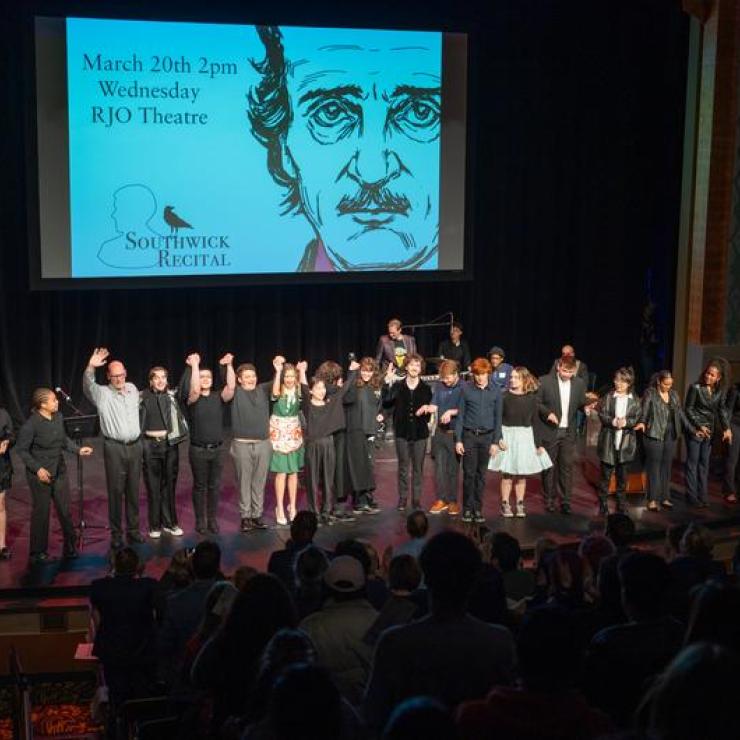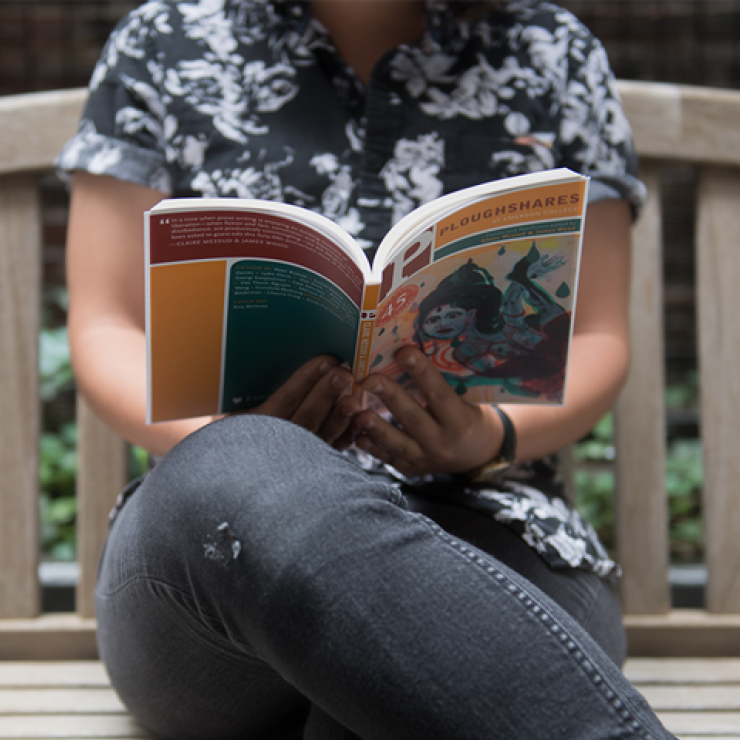A Journalist’s Mindset
Learn more about Emerson’s journalism programsCelebrating the Spring 2024 Semester and Inauguration of Emerson’s 13th President
Poe-Themed Southwick Recital Kicks off Inauguration Celebration“Once you realize that the Emerson community is all about collaboration and trying to uplift one another, you will succeed in more ways than you thought possible.” — Omar Mardini ’22
Emerson Elevates Diverse Voices and Inspires Audiences Through Arts and Culture
Learn about our commitment to civic engagement through arts and cultureOur community pioneers new pathways in global public diplomacy, entrepreneurship, clinical care, and communication.
See How Emerson Innovates in the Field of Communication


